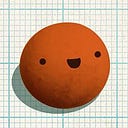My ‘Rather Weird’ Mum
Dr. Dinah Murray (1946–2021)
If you knew my mum, I don’t have to tell you that she was kind, passionate and sometimes fierce: she was appalled by injustice and unfairness, and she was outspoken in challenging it. She was indignant on behalf of people who are talked over, and spent much of her life working to help them be heard.
While she was generally quite able to make sure she was listened to herself, she obviously felt an affinity for people who are misunderstood and ignored. She wrote in 2004, ‘On those rare occasions when her meanings are taken amiss or not understood and an assumed smooth encounter is engulfed by mismatched expectations and negative assumptions, she can become a person incapable of communicating, of socialising, of thinking — and be strongly drawn never to expose herself to such risk again.’
That’s from ‘One That Got Away’, the book chapter where she first publicly wrote about thinking of herself as being ‘somewhere on the autistic spectrum’ — although at that time (a couple of years before I sought out a formal assessment for autism myself) she said ‘there are reasons why I do not entirely feel I deserve the accolade’, in later years she came to identify less ambiguously as autistic, as did I.
There’s a long section in that chapter titled ‘Being rather weird’, and Dinah’s acceptance of her own and other people’s weirdness was a defining feature of both her professional and personal life. She was always friends with a wide range of fascinatingly weird people, and when her kids turned out to be fairly odd too, in our different ways, she made sure we didn’t see that as a problem, even if other people sometimes might. I owe to her my ability to be proudly weird, and I shudder to think where I would be without it: probably no less weird, just much less comfortable with it.
I think she helped a lot of people to accept themselves, and I know she helped a lot of people to understand themselves better. Her framework for understanding autism, and her insights into thinking about neurodiversity more broadly, will make a difference for decades to come: she died feeling she had achieved her life’s work, a firm foundation for people to work from, her ideas increasingly accepted and recognised.
We talked a lot in her last weeks about the lives she’d touched, the ways that people appreciated her and how much she loved them back. She had a way of connecting people who needed to be connected. I read to her from the book ‘Humankind’, about the weight of evidence that people, by and large, are fundamentally decent; Leo read to her from ‘Entangled Life’, about mushrooms, mycelia and the interconnectedness of all living things. Both books felt like they were filling in details of things she already deeply felt, understood and embodied.
Dinah died of pancreatic cancer on Wednesday, the 7th of July 2021. She was well cared for and surrounded by love, and experienced surprisingly little pain. I wrote the above for her send-off a month later, on the 7th of August, which was recorded and should be available later.
Here is a collection of writing about her and an archive of her own ‘Productive Irritant’ work.
